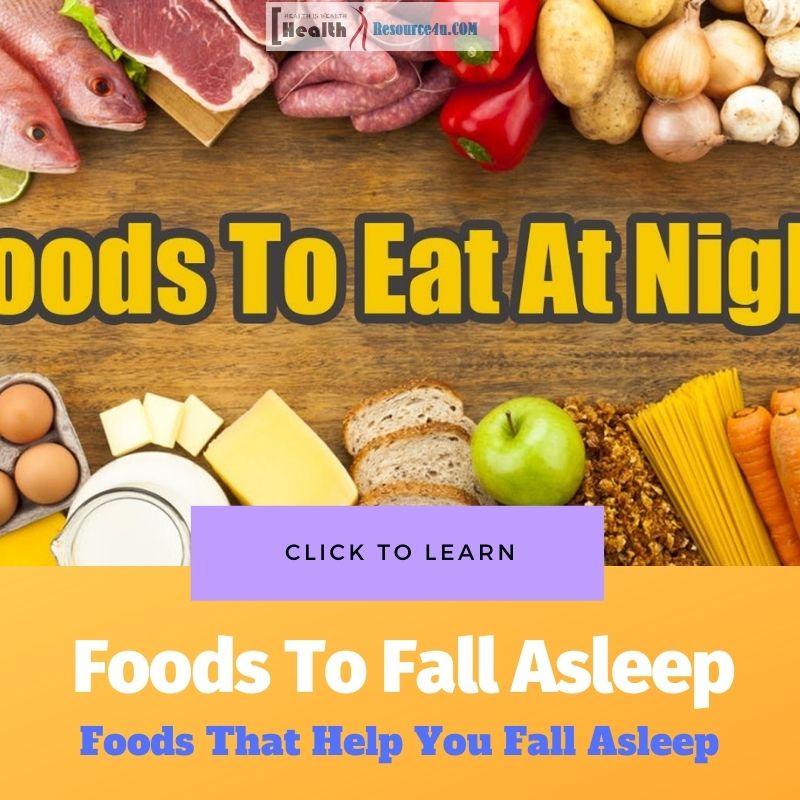In a modern busy lifestyle, a good night’s sleep is sometimes pretty difficult to achieve. Over the last 60 years, the average daily sleep hours in adults has dropped from 8.5 hours to 6.5 hours. Work hours have increased and, though modern conveniences have evolved, somehow our lives have only gotten busier.
An increasing number of studies have suggested that a lack of sleep could lead to many long term health problems, and affect your daily life in almost every way. The more we learn about sleep and sleep patterns, the greater our understanding of how things we eat can help us sleep.
There are many angles to a healthy sleep lifestyle. This includes things like exercise, stress management, not over caffeinating, and limiting mental stimulus before bed. One other very important part of your life to consider in relation to sleep is your diet. There are many foods that can help you get to sleep faster and/or achieve a deeper more restful sleep.
How do these foods work and achieve this sleep benefit? Here are 5 things you should know about how certain foods can influence the quality of your sleep. Knowing how these foods function can help you better prepare and decide what could be helpful to you.
The Importance Of Melatonin
Melatonin is a chemical that controls and regulates your internal clock. This chemical is why it is helpful to always sleep in as dark an environment as possible. Because darkness triggers the release of melatonin in your brain as a way to signal that now is the time for sleep. Some people take melatonin as a supplement 20 to 40 minutes before bed, but some foods, though not many, actually contain natural melatonin and can be helpful in bolstering an effective sleep if eaten before bed. Many other foods convert to melatonin and/or bolster systems that produce it.
Cherries have been found in studies to contain a significant amount of melatonin and are one of the few foods to contain melatonin naturally. Grapes are also a melatonin source, though not in high enough levels to easily achieve results without consuming so many that the effects of sugar spiking before bed could be more harmful to your ability to sleep. Cherries, dried cherries, and tart cherry juice can be a great source of melatonin before bed.
Walnuts have also been found to contain their own form of melatonin and combined with the healthy fats they contain these can really be beneficial to munch on 20-30 minutes before bed.
Tryptophan And Serotonin
Serotonin is a neurotransmitter in the brain that acts as a mood stabilizer and has been shown to help in regulating sleep patterns. Tryptophan is an amino acid found in many foods that gets converted to serotonin when consumed, and then subsequently converted into our helpful sleep friend, melatonin. Carbohydrates can also trigger tryptophan release. Good sources include:
- Dairy products
- Poultry
- Grains (wheat, rice, barley, corn, oats)
- Fruit (apples, bananas, peaches, avocado)
- Vegetables (spinach, broccoli, turnip greens, asparagus, onions, seaweed)
- Seafood (shrimp, salmon, halibut, tuna, sardines, cod)
- Nuts and seeds (flax, sesame, pumpkin, sunflower, cashews, peanuts, almonds, walnuts)
- Legumes (kidney beans, lima beans, black beans split peas, chickpeas)
Magnesium
Magnesium is an important mineral that helps to deactivate adrenaline and is also a natural relaxant that is known for helping with stress. People with a magnesium deficiency are almost always sufferers of sleep loss. Many foods can be eaten to obtain natural sources of magnesium in your everyday diet. Some of them include:
- Spinach
- Kale
- Avocados
- Bananas
- Soybeans
- Nuts and seeds
- Fish
Vitamin B6
Vitamin B6 has been linked to mood disorders and serotonin production. This vitamin helps in the conversion of tryptophan into melatonin. Research has also suggested links between vitamin B6 and a reduction of anxiety. You can find a dose of Vitamin B6 in foods like:
- Meats and fish
- Prunes
- Avocados
- Spinach
- Flaxseed
- Pistachios
- Bananas
Calcium
Calcium is also helpful to the brain in producing melatonin and has been found to stabilize sleep. Calcium deficiencies can lead to waking in the middle of the night and difficulty falling back asleep. Many dairy products contain a wonderful combination of calcium and tryptophan and these can be some of the greatest food-based sleep aids you can find. Consuming these dairy products 20-30 minutes before sleeping can be very helpful. A diet rich in calcium will help with many aspects of sleep hygiene. Good choices include:
- Milk, cheese, yogurt
- Dark leafy greens
- Whole grains and cereals
- Orange juice
- Broccoli
- Okra
Melatonin is the real power player here. Few foods contain it naturally. Due to tryptophan converting to melatonin in the brain and other minerals boosting the effects of melatonin, your diet can be really key in making sure you can produce healthy levels of this sleep system powerhouse. Many foods can also be eaten closer to bed (but not too close) as a helpful kick start.
There are other dietary sleep processes that can help in sleep. When you eat a meal rich in carbohydrates about an hour before bed, the resulting blood sugar spike will trigger the release of insulin and the crash that follows can really knock you out. This can actually be harmful to your body and getting in the habit of it could increase your risk of type 2 diabetes.
A healthy balanced diet that considers these helpful foods will only aid in your efforts towards healthy sleep.


men need to drink water, eat well and just straight up work on keeping themselves healthy. I use a penis health creme daily. Keeps me fresh, hydrated and smooth. No more bumpiness, redness, dryness, scratching, peeling or irritation. Finally!!!! It took me YEARS to find something that worked and that’s why I recommend it to everyone.